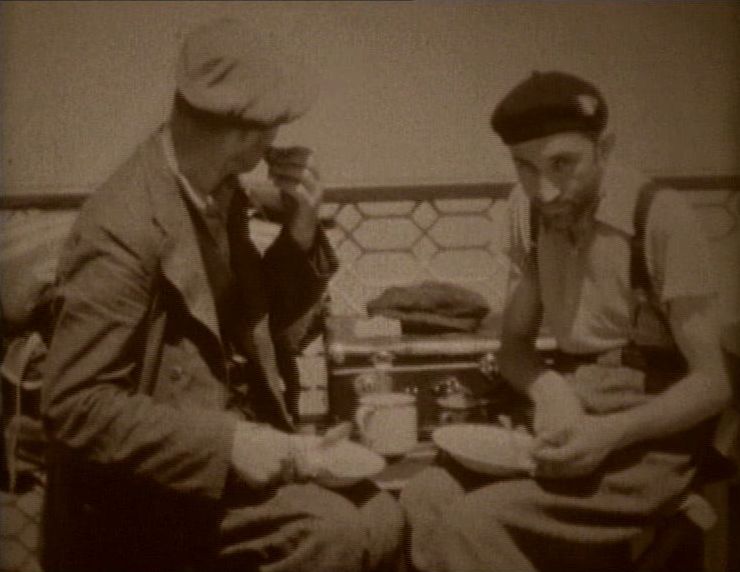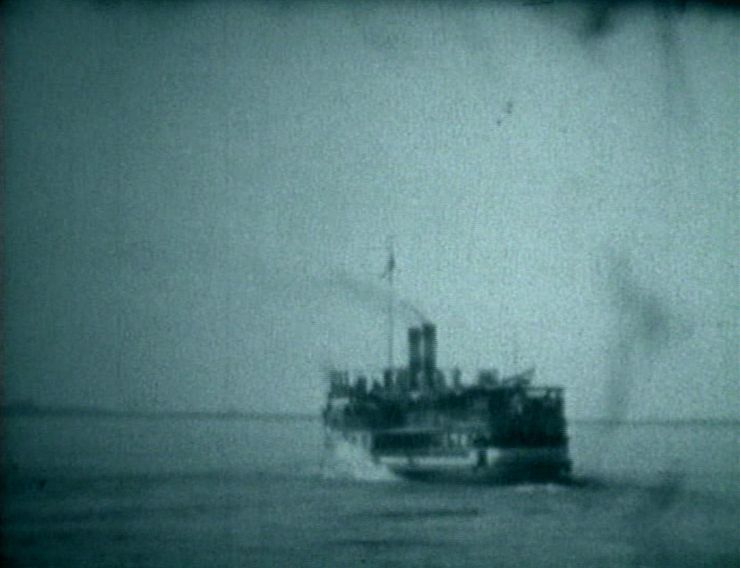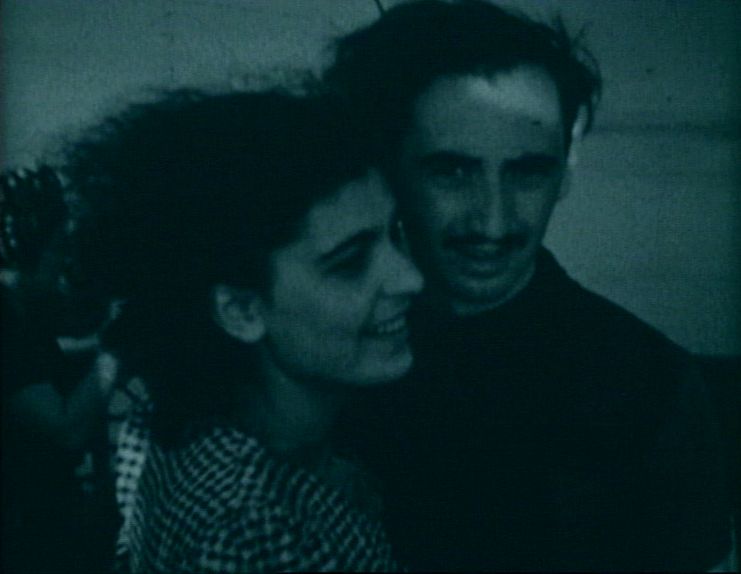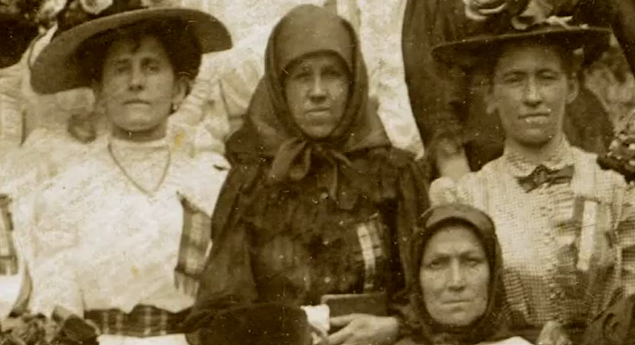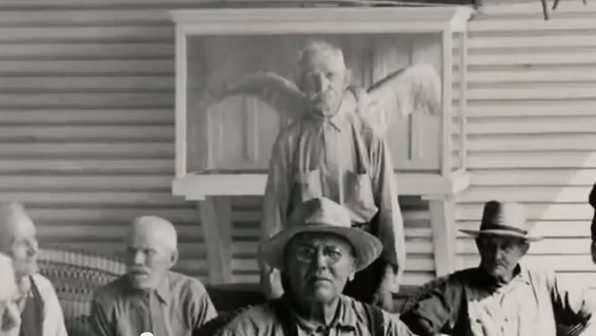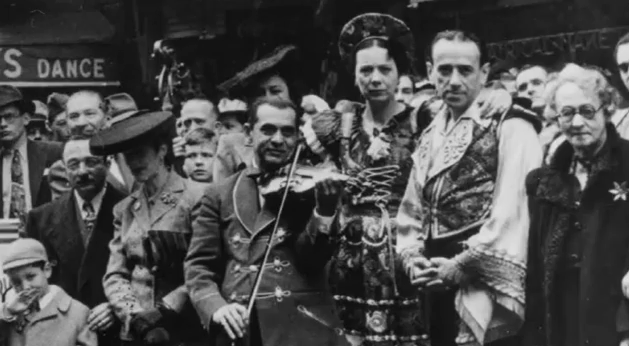Every year, the Krakow Film Foundation Programme Council grants the Dragon of Dragons award for the exceptional contribution to the development of the international cinema. During the anniversary 60th Krakow Film Festival, the award will go to Péter Forgács – the outstanding Hungarian documentary filmmaker and a world-famous multimedia artist.
The extraordinary works of Forgács are based on the original technique of making films from ready-made materials, shot by other authors. The artist devoted many years to collecting, archiving, reconstructing and editing old, damaged, amateur film tapes, giving them new meanings. The images set in the realities of the dramatic fates of Hungary and Europe of the 20th century, seem to remind that the history of the world is a collection of ordinary people’s personal stories.
“Just like alchemists dreamt about turning base metals into gold, for several dozen years Forgács has been meticulously using the found old tapes of home films, shot by amateurs, to make impressive cinematic montage film, giving his findings new life in image and sound. Starting from the establishment of the Private Photo & Film Archives Foundation in Budapest, 1983, to the subsequent findings in various European countries, he became the unquestionable master of his own original form: found footage,” this is how the choice of this year’s winner is explained by the President of the Krakow Film Foundation Programme Council, critic and film theorist, Prof. Tadeusz Lubelski.
The award winner has already visited Krakow several times, and he emphasises that it is one of his five favourite cities in the world. The Krakow Film Festival hosted Forgács in different roles. Only two years ago, he was the chairman of the jury of the international documentary film competition. In turn, in 1999 his film “The Danube Exodus” was given the Silver Dragon and the FIPRESCI award in Krakow.
The official award ceremony of the Dragon of Dragons is held on the 2nd of June, 2020, at the 60th Krakow Film Festival. In the programme of the Festival, within the frames of the retrospective, there will be many special works by the artist, among others, “The Danube Exodus,” “Hunky Blues. The American Dream,” and “Miss Universe 1929 – Lisl Goldarbeiter. A Queen in Wien.” The viewers will also have the unusual opportunity to watch fragments of the audiovisual installation “Letters to Afar,” which Forgács prepared specially for the opening of the Museum of the History of Polish Jews POLIN in Warsaw in 2013. Traditionally, the award-winner of the Dragon of Dragons will also give a master class open to filmmakers, but also to all fans of documentary cinema.
The Dragon of Dragons award, given for the 23rd time this year, is the highest distinction granted by the Krakow Film Foundation Programme Council, the organiser of the Krakow Film Festival, in recognition of the contribution to the development of international cinema in documentary and animated film genre. Among previous winners of the award, there are many prominent film-makers, among others, Werner Herzog, Priit Pärn, Kazimierz Karabasz, Bohdan Kosiński, Bogdan Dziworski, Allan King, Albert Maysles, Jonas Mekas, Helena Trestíková, Stephen and Timothy Quay, Raoul Servais, Jerzy Kucia and Paul Driessen.
- „The Danube Exodus”, dir. Péter Forgács, Holandia, 1998, 60’
- “Meanwhile Somewhere 1940-1943”, dir. Péter Forgács, Węgry, 1994, 52’
- “Hunky Blues – The American Dream”, dir. Péter Forgács, Węgry, 2009, 100’
- “Picturesque Epochs”, dir. Péter Forgács, Węgry, 2016, 133’
- “Miss Universe 1929. Lisl Goldarbeiter. A Queen in Wien”, dir. Péter Forgács, Austria, Holandia, Węgry, 2006, 70’
- “Kadar’s Kiss – Private Hungary 12”, dir. Péter Forgács, Węgry, 1997, 46’
- “Free Fall – Private Hungary 10”, dir. Péter Forgács, Węgry, 1996, 75’
- “Wittgenstein Tractatus”, dir. Péter Forgács, Węgry, 1992, 32’
- “The Maelstrom: A Family Chronicle”, dir. Péter Forgács, Holandia, 1997, 60’
